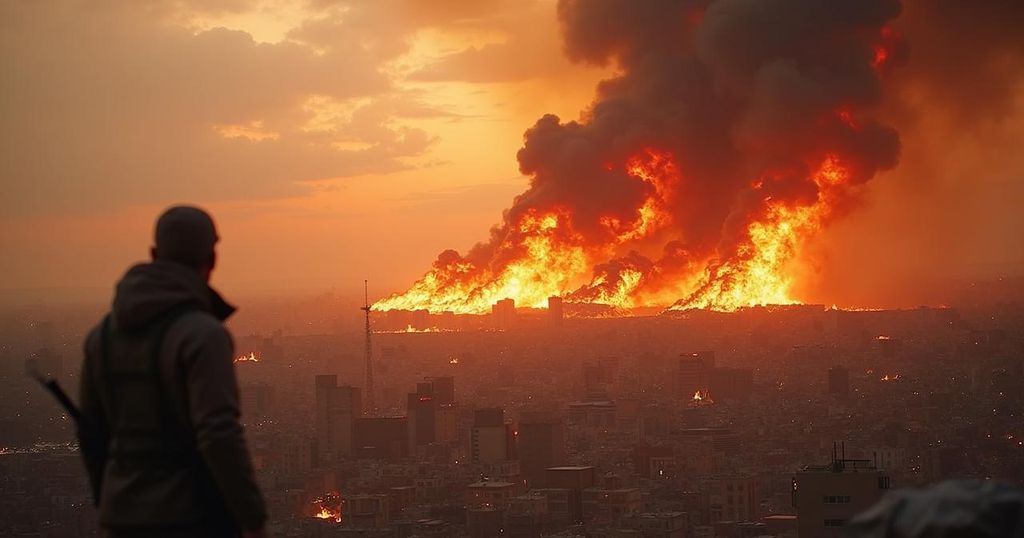Guterres Urges Immediate Ceasefire Amid Escalating Middle East Conflict

UN Secretary-General António Guterres condemned the escalating conflict in the Middle East, calling for an immediate ceasefire. Hostilities intensified with Iran launching missiles at Israel following a limited Israeli ground incursion into southern Lebanon. The situation echoes past conflicts and remains precarious amid persistent humanitarian crises, especially in Yemen.
On Tuesday, United Nations Secretary-General António Guterres issued a strong call for an end to the escalating violence in the Middle East, referring to the situation as an ongoing series of conflicts. “I condemn the broadening of the Middle East conflict, with escalation after escalation,” he stated, emphasizing the urgent need for a ceasefire. Reports indicate a significant uptick in hostilities, with Iranian forces launching numerous ballistic missiles toward Israel shortly after Israel commenced a ground incursion in southern Lebanon, which it described as a limited operation. The Israeli military claimed that approximately 180 missiles were launched, most of which were intercepted, and fortunately, there were no immediate reports of injuries in Israel. This clash follows recent Israeli airstrikes in Beirut that targeted the leadership of the Hezbollah militant group. Additionally, tensions have been heightened due to cross-border exchanges between Israeli troops and Hezbollah, coinciding with the ongoing Gaza war, which is rapidly approaching its second anniversary. This conflict mirrors past hostilities, such as those that occurred nearly two decades prior when the United Nations Security Council adopted Resolution 1701 in response to a 34-day conflict, calling for a strengthened UN peacekeeping presence in the region. The unrest is not limited to Israel and Lebanon, as Israeli airstrikes in Yemen have also drawn attention. These airstrikes aimed at military targets did not impact the critical port of Hudaydah, despite missile attacks from Houthi rebels targeting Israeli cities. Hudaydah remains vital for humanitarian aid to Yemen amid a protracted civil war. UN humanitarian officials are currently assessing conditions in Hudaydah, noting that the ports are still operational, although power supply limitations persist in the city. Efforts are ongoing to deliver essential supplies to support the humanitarian needs of the population. The situation remains precarious, with regional escalations affecting not only the involved parties but also global maritime trade due to increased attacks on merchant vessels by Houthi forces since the onset of fighting in Gaza. Amid these developments, Israeli Ambassador Danny Danon addressed the media at the UN, responding to the day’s events.
The current crisis in the Middle East, particularly between Israel and Iran as well as Hezbollah, has resulted from a series of conflicts that have intensified in recent months, following the outbreak of war in Gaza. The involvement of Iran and missile strikes against Israel signifies a danger of broader regional escalation, compounded by the extensive humanitarian crisis in Yemen and ongoing clashes involving Houthi forces. Understanding the role of international resolutions such as Resolution 1701 (2006) provides context to the current military and political strategies employed by the involved nations.
In conclusion, the statements made by Secretary-General António Guterres underscore a critical need for a ceasefire amid the ongoing escalations in the Middle East. The complexities of the situation, including cross-border attacks and the humanitarian crisis in Yemen, highlight the urgent requirement for diplomatic resolutions to restore peace and stability. Continued monitoring of the situation is essential as hostilities show no sign of abating in the region.
Original Source: news.un.org








